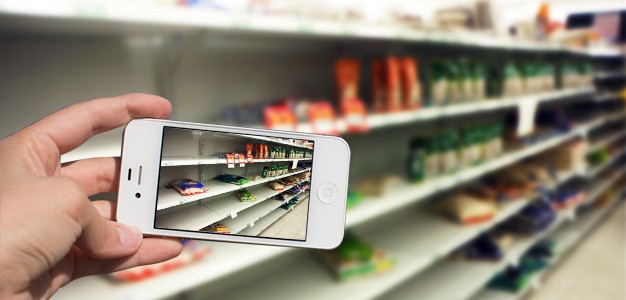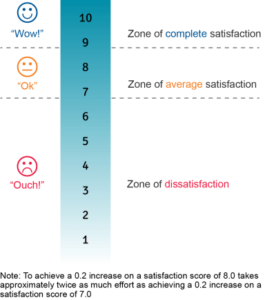COVID-19 is having a lasting, worldwide impact on consumer preferences and behaviors, according to a new report from KPMG International, “Responding to consumer trends in the new reality.” The report tracks the opinions of 75,000 consumers in 12 markets to examine the changes and how businesses need to think and act differently in response to these trends.
Since May 2020, research has seen four key trends that have impacted consumers and have ultimately changed their purchasing patterns and consumption. Consumers expect these changes to last longer than 12 months.
The trends across the globe are
- economic impact,
- erosion of trust,
- rise of digital and
- Home is the new hub.
These themes highlight the pressures consumers are under, their feelings towards brands, and their changing behaviors in the new reality. Retailers will need to better understand the needs of the customer groups — via segmentation driven by AI and psychometrics. Personalization not only of communications, but also of developed products, will be key to meeting the needs of the new consumer. Besides, consumers are gravitating toward brands that are empathetic and supportive of their values. Consumer Commerce is the future. Bricks and mortar will remain an important channel although we know channel agnostic and customer centric is key and the competition will be much broader than today’s retail.”
Nearly half, 45 percent, of respondents do not feel a strong financial impact, which could mean opportunities for businesses that are able to meet the new consumer’s expectations. All consumers predict they will spend less in the next 6-12 months and all are prioritizing savings. Perhaps not surprisingly, ‘value for money’ is ranked as the key purchase driver.
Key trends include:
- Two in five (43 percent) of consumers are worried about their financial security in 2021
- More than one-third (36 percent), are prioritizing savings over spending
- 37 percent are working from home more, and 60 percent plan to do so more in the future
- One in five (20 percent) want to stay at home as much as possible
- Confidence in public transportation has declined 37 percent compared to before COVID-19
- Net spend is expected to be 21 percent less over the next 6-12 months, versus pre-COVID-19
- Close to half (45 percent) predict digital channels will be their main connection to brands
- “Value for money” is ranked by 63 percent as the top purchase criteria
Consumer brand relationships are likely to permanently change as a result of COVID-19 and businesses need to reexamine how they build trust with their customers in this new reality. The brands that can demonstrate and articulate their value and adapt to rapidly changing customer demands as they spend more time at home and rely more on digital, are the ones that will be most successful.
IMPACT OF COVID-19 ON PAKISTANI CONSUMER PREFERENCES
According to the Survey, 62.3% of respondents confirmed that their overall spending had decreased; 19.4% were of the opinion that the lockdown had not made much difference and 13.3% that their spending had increased.
- Groceries, Disinfectants and Sanitizers on the Rise
Although consumers may have been spending less or very little on non-essential items they used this amount to stock up on other items instead. These include groceries such as packaged food, fresh food, beverages (58.7%) – not surprising given that the lockdown led people to throng supermarkets and stores. Groceries most stocked upon on include daily essentials such as bread, flour, pulses, rice and sugar (53.4%), fruit and vegetables (44.7%), snacks (36.3%), meat/poultry (33.4%), and frozen foods (21.7%). Other items that consumers have been spending more on include personal protection products, such as sanitizers, gloves and masks (54.5%).
- Dining Out On the Dive
Respondents stated that they are spending less on clothes (74.2%), fuel (75.3%), and recreational activities (69.3%). A category that has also been in the red is the food business (restaurants, eating out/ordering and takeaways), as 79% said that they are ordering in and dining out less due to the lockdown. Prior to the lockdown, 59.6% ordered food at least once a week or less from a restaurant, 25.3% ordered once or twice a week, 9.7% twice or thrice a week and more than 5% four or more times a week.
- Online Shopping and Banking Booming?
Surprisingly, while the rest of the world saw a spike in online shopping during the lockdown (groceries mainly), in Pakistan 53.4% still purchased groceries from physical stores. Only 10.6% used an online channel to buy an item for the first time although 18.7% said they are ordering more online now; 16.8% said they regularly used e-commerce channels for their purchases even before the lockdown. Nearly 12% said they were willing to try online shopping for the first time but had not done it yet. (7.5% said they did not have the option to shop online in their respective cities or areas).
While the lockdown has seen a surge in internet banking globally, in Pakistan only 5.9% downloaded banking apps or used online banking services for the first time during the lockdown; 22.5% said they are not using online banking channels while 4.7% said they would like to try in the near future.
- Brand Loyalty Compromised?
The last two months have seen a shift in consumer priority, with the focus moving towards availability, due to shortages as a result of panic buying, stores and supermarkets running out of stock (33.8% said that they have been unable to source their preferred brands). This demand and supply gap has led to consumers trying alternate brands (21%) while 8.8% purposely opted to buy cheaper brands in order to economise. Consumers who stayed loyal to their brands constituted 31.3% and 38.6% said they were not brand loyal.
Business exists for customers and the way you deal and respond to your customer will determine how productive is your business as well as its ultimate impact on customer retention. Ace Research proposes that the information you acquire from your customers, help you grow your business. The research method you will opt will depend upon the type of your business and the kind of information you need to acquire. And it can be done internally by assigning a task to some individuals or you may hire a consultant to conduct perhaps more transparent research for your organization.
- Are Brands Communicating Effectively?
When asked if brands have created advertising/communication messages relevant to Covid-19, 35.8% stated yes; when asked to name these brands, the ones mentioned most frequently included soap and telecoms: Lifebuoy (12%), Dettol (4%), Safeguard (3%), Jazz (1%), Telenor (1%) and Ufone (1%). “Brands have molded their ads and product line-up according to the onset of Covid-19; telecoms have made recharging balances much easier.
The top three brands mentioned included Lifebuoy (5%), Dettol (2%), and Safeguard (1%). As to whether any brands stood out because of a CSR initiative, 24% named a brand – Jazz (3%) followed by Asim Jofa, EBM, Telenor, Engro and Unilever (1 to 2%). One respondent remarked “I read that many brands are actually donating money to the Prime Minister’s Ehsaas Emergency Cash program, which is good to see but more efforts need to be made by other brands as well.”








